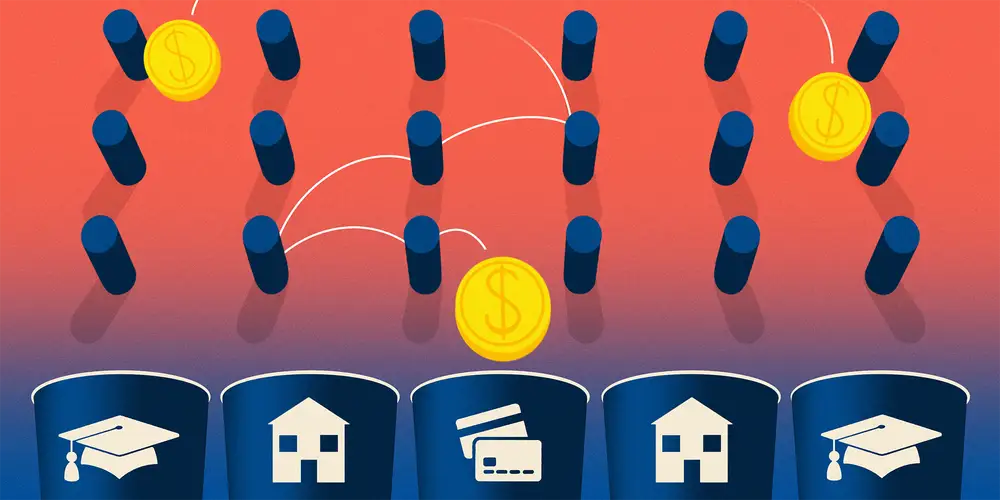I’m a financial planner with retirement-age clients, and I always tell them to prioritize savings over paying off certain debts

Debt might seem like a burden if you’re on the verge of retirement, but in some cases, it’s worth focusing on your retirement savings as your first priority.
As a certified financial planner, the most pressing concern I see among people preparing for retirement is whether they have enough money saved. The second most common concern people have is paying off all their debt and reducing their monthly overhead as much as possible.
What many fail to realize is that by focusing solely on aggressive debt payback, they are further limiting the funds they have to put toward building a retirement nest egg. By opting to aggressively pay down debt instead of investing, they create a negatively reinforced cycle of insufficient savings. That means they add less money to their retirement accounts, which means additional financial stress and more financial instability.
The truth is that not all debt in retirement is a bad thing. It’s important to consider the type of debt and consider whether you should prioritize paying off debt or saving in the final years before retirement.
Aggressively pay off high-interest credit card debt
High-interest credit card debt (10% in APR or more) is the only type I would recommend aggressively paying off. You’ll want to list out each of your debts, the interest rate, and the monthly payment amount. Then you should make a plan to pay it off before retirement, utilizing either the debt snowball or avalanche based on your personal preference.
If you are a fan of quick wins, then the debt snowball is your best bet. If you really want to quickly free up more monthly cash flow, then choose the debt avalanche, as it pays off the cards with the highest monthly payment and largest balance first.
Compare Personal Loan Rates
Your student loan plan should depend on several factors
If you have student loans, whether you prioritize repayment before retirement will largely depend on the interest rate.
If they are federal or private student loans with a higher interest rate (8% or higher), I recommend aggressively paying off those loans before retirement while continuing to save. If your student loans are less than 8%, I would continue making regular payments and investing at the same time.
If your student loans are in default, please be sure to work on getting them current before you retire. Contrary to popular belief, they do not simply go away after a certain amount of time has passed. The federal government will actually garnish a portion of your Social Security check to ensure they are paid — furthering your personal retirement insecurity.
Your mortgage doesn’t need to be a top priority
I don’t recommend aggressively paying down your mortgage before retirement unless you have saved enough for retirement and have substantial cash flow. While you spend time, energy, and capital funneling hundreds of thousands of dollars into an illiquid asset, you could have put that money into your retirement account and secure a fantastic standard of living in retirement.
Failing to save enough for retirement presents a large risk for many Americans. Inflation and wage stagnation can make it hard to save for retirement. However much debt might bother you emotionally, it’s important to remember that it is more important to have a nest egg to fall back on than it is to have a paid-off home.
How to decide your priorities
Some financial gurus recommend only focusing on one financial priority at a time, but you can truly invest and pay down debt at the same time. In my experience, it is the most sustainable path. But how do you decide which is the most important?
If your interest rate on your debt is less than your expected rate of return on your investments, you should invest instead of aggressively paying off debt. If your investment return is lower than the interest rate on your debt, prioritizing debt payoff makes the most sense.
For example, if your car note has an interest rate of 4%, but your investment annual expected return is 8%, you will be better off financially if you invest more instead of paying down debt.
Focus more on your retirement savings as you approach retirement
If you are less than 10 years from retirement and have less than five times your annual income saved in retirement, then you will want to prioritize putting money away for retirement over anything else (except maybe high-interest credit card debt or payday loans).
For example, let’s say you make $75,000 annually. If you have less than $375,000 saved across your various retirement accounts, then you will want to heavily prioritize your retirement savings. In this case, there is nothing more valuable to you than getting as much money as you can in your retirement accounts so that compounding can work its magic.
To make the wisest decision, it’s best to first evaluate your personal financial situation, consider your debts and retirement accounts, and calculate how much you need to save to maintain your standard of living in retirement.






